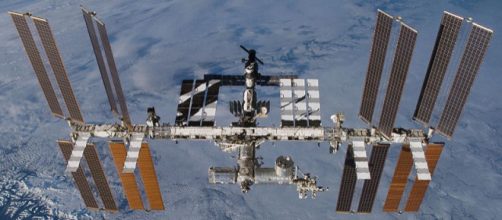Even the best-laid plan can get derailed due to external influence, and the delay in transportation of necessary supplies to the International Space Station (ISS) is one such incident. The launch of the rocket had to be postponed at the last minute from the Wallops Flight Facility of NASA in Virginia. The reason was a stray aircraft that had strayed into the danger zone of the rocket’s path.
The unmanned Antares rocket of Orbital Atk was scheduled to carry the consignment of fresh food and equipment required for conducting experiments on board the space station.
However, the operation had to be shelved because of the aircraft which was flying at an altitude of around 500 feet.
Activities of the ISS
Sky News reports that the Antares rocket from Orbital ATK was scheduled to transport nearly 7,400 pounds of cargo to the International Space Station. A team of six astronauts is presently staying in the test-lab, and they require a fresh supply of food on a regular basis. They also require various types of equipment for undertaking research and experiments which also have to be sent across.
NASA has clarified that the present consignment included a wide range of material that will be necessary to conduct studies on the effects of microgravity in space and resistance of specific bacteria to antibiotics.
The payload also has materials that the astronauts would require to test high-speed communication links between space and the Earth.
NASA has roped in private operators
Orbital ATK has been associated with such supply missions, and the present one would be the eighth one. It has a regular contract with NASA to transport consignments to the International Space Station.
This will be its first launch from Virginia because the previous one had used a different rocket, and it was launched from Cape Canaveral, Florida.
Drastic cuts in its budget have forced NASA to rely on private operators to finance its activities related to space research. This is to ensure continuity of work in the ISS. Along with Orbital ATK, the American space agency has offloaded many of its missions to SpaceX, which has undertaken resupply missions.
It has also improvised by introducing the concept of reuse of rockets to bring down the cost.
The tie-up between NASA and SpaceX is to mutual advantage. The colonization of Mars is on the agenda of both. A joint venture relieves NASA of the worries associated with arranging for routine missions to the ISS so that it can concentrate on research work. Elon Musk, the founder of SpaceX, does not have to worry about funding from external sources which helps the cause.


